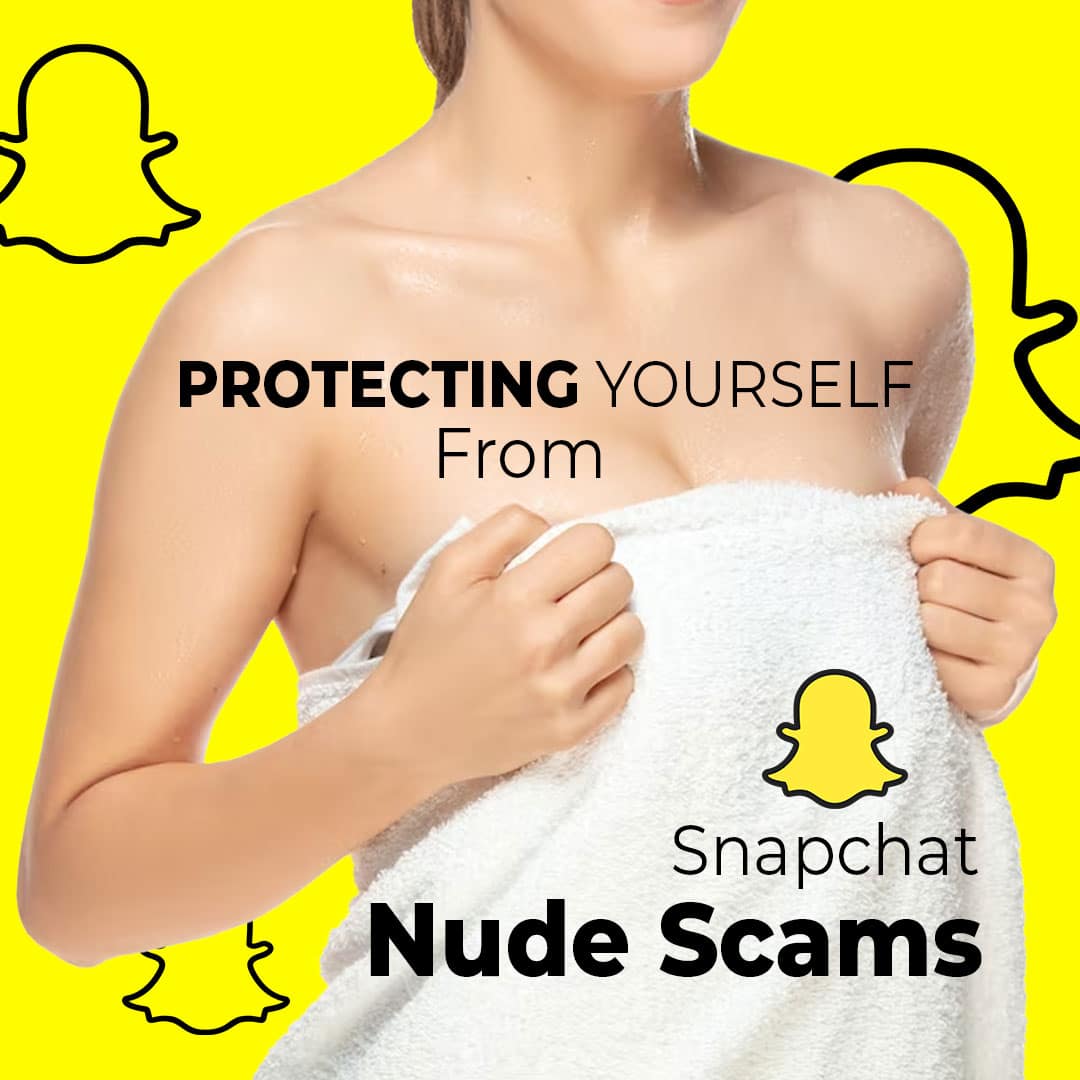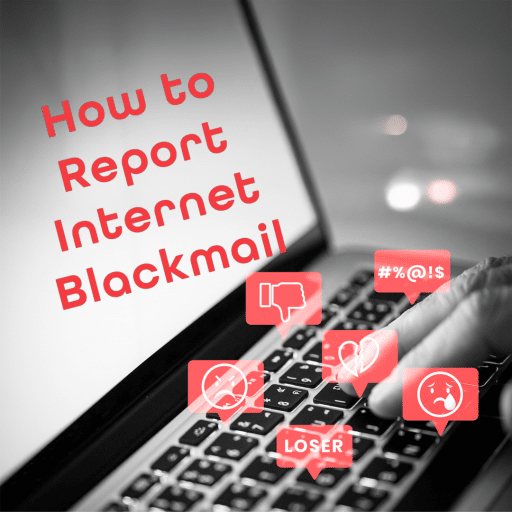A Snapchat nude scam can be a scary situation to deal with on your own, and it may feel like you have no control over the issue. In this article, we’ll cover how you can protect yourself from an falling victim to these types of scams.
Scammers may employ tactics to extort their victims or make them feel isolated, but with the tools we’ve laid out, you can regain control of the situation. Generally speaking, the online world is full of potential scams, scammers, and exploits looking for a target.
While all platforms have their vulnerabilities, each one is designed with a certain audience in mind. Different platforms offer different services and provide its users with a unique experience. The variations of these platforms allow for different types of scams and attract certain kinds of scammers.
Why Isn’t It Safe To Share Nudes On Snapchat?
Snapchat, like other platforms, allows its users to send photos and videos directly to other users. One key difference is that the videos and photos sent are intended to expire after viewing(1). This can leave many with a false sense of security, sending a nude photo or video thinking it can’t be saved.
Modern devices can easily screenshot or screen record what is being displayed. Taking screenshots allows any user to capture what is shown on the screen exactly as the user sees it. In this case, the content sent on Snapchat that was intended to expire can be saved forever by the recipient. This vulnerability can give cyber criminals the content they need to perform a cyber scam.
When a blackmailer uses intimate content of nudes to threaten a victim with exposure they are committing a crime known as sextortion. Sextortionists threaten to release the content, likely to friends, family members, or coworkers if the victim does not comply and pay them for their silence.
What Is a Snapchat Nude Photo Scam?
Scammers on Snapchat will create fake profiles, becoming what is known as a catfish that they pass off as someone else. The scammer hides their identity by using pictures and information from someone else they found online, possibly from a different platform entirely. They’ll then attempt to obtain nude photos or video content from another user.
The scammer will likely target anyone and everyone with profiles that appear to be of young women or men. They’ll initiate sexual conversations with the hope of getting the attention of their victim.
The scammer will send a nude photo of their own, which, in reality, is one they took from somewhere else. They will then ask their victim to send them sexual images or videos of themselves.
With the sexual content sent to the scammer, they will capture the nude picture and turn their conversation into threats. Sextortionists will do due diligence on their victim by using the information they’ve gathered in conversation or in their profile to blackmail them.
They may send the victim proof of their threat with the names or information of people close to the victim. The sextortionist will tell their victim that if they aren’t paid in some form, they will release the content to the victim’s friends, family members, or coworkers.
These bad actors rely on their fear tactics and threats to make their victims compliant. Their leverage is the explicit images they’ve collected and the information they’ve gathered through social engineering.
A scammer may gather information about their victim through information they gather from the Snapchat account. This could be information available in the profile like their name or username which could help the scammer identify the user.
It could be information the victim publicly posts, or pictures they share to their story that are geotagged. Or they could obtain information about their victim through careful questioning.
Another way they may get information about their victim is through phishing tactics. Phishing is when a scammer pretends to be someone their victim is familiar with. They’ll engage in conversation asking questions that their victim would feel comfortable providing answers to.
How Can I Protect Myself From a Snapchat Nude Photo Scam?
There are many steps you can take to protect yourself and loved ones from a Snapchat nude scam.
Here are the top things you can do to stay safe online:
- Don’t Send Nude Photos on Snapchat: The most obvious solution to not becoming a victim of a Snapchat nude scam is to not send nude photos on Snapchat. Even if you were to share the explicit images with a partner, those pictures could be saved. The pictures could then be shared against your will. A third party could become involved and use the images to blackmail you.
Even with a committed partner, sharing the content could become problematic. There could be an issue of an account being hacked or someone pretending to be your partner through a phished account made to look similar to theirs.
If someone is a minor involved in sharing intimate images, there are legal implications of being in possession of and spreading child pornography. In many places, a child can be found criminally liable for sending or having pornographic material of a child, even if it’s their own.
- Talk to Your Children: It’s important to speak with your children about safe online habits and not participating in online sexual activities. Depending on what age they begin getting involved in online activity, the conversation can start with setting expectations about not interacting with others online.
As they get older and more involved with others online, they should learn about the threats that exist. Explain how there are people online who pretend to be someone they aren’t and can potentially do harm.
What Can I Do if I’m a Victim of a Snapchat Nude Photo Scam?
If you or a loved one has become a victim of a Snapchat nude scam it’s important to act quickly. Taking the appropriate steps in the right order can be very necessary in keeping you safe. Our guide below will give you the quick tips you need to take to protect yourself.
- Begin by documenting as much of the encounter as you can. This can be done by taking screenshots of all conversations between the victim and the sextortionist. Screen recording may be beneficial for showing extensive evidence. The victim can write down what happened and include anything that isn’t seen on screen. Write about what led up to the scam and include conversations that may have happened off the platform. A timeline of events can be very helpful.
- It is important not to pay the scammer. Paying them will incentivize them to keep in contact with the victim. They may continue to request money or to be sent more sexual content. Sending them a payment could escalate the threats and make the scammer even more invested.
- Securing your other social and digital accounts is a great next step as it ensures lack of cross exposure. Even if your password wasn’t directly given to the scammer, they may have enough information to go off of to guess your password. You can also set additional account protections like two-factor authentication.
- It may also be imperative to set other social media accounts to private. A scammer may have found your other accounts or may start looking once they’re blocked on Snapchat.
- Finally, to ensure all of your accounts remain unharmed, you’ll want to change your password. If the scammer has figured out your password, they may be able to gain access to sensitive accounts like banking or financial institutions. If you fear these accounts
You’ll Need To Report Your Scammer.
Snapchat, like many other social media platforms, allows users to report people who abuse the platform. Within Snapchat, you should be able to report the bad actor for extortion.
Select the right category for the issue so that the user is removed from the platform in a timely manner. Reporting a scammer can help protect the victim as well as any other ongoing or future victims.
Contact the Proper Authorities
Blackmail and sextortion are crimes that are taken very seriously. Cases involving children will likely get attention from special divisions and provide extra support. Seeking help from the authorities is especially important to keeping the victim safe and bringing the perpetrators to justice.
The extent of the scam may dictate which authority you contact, but each one should give you support and escalate the issue as needed. Your local law enforcement may have a division that is suited to handling cybercrime.
If they don’t or aren’t capable of handling complex issues you can contact the FBI where they may have a local field office. For cases involving children, NCMEC is a great organization to contact.
Contact Digital Forensics
Digital Forensics is dedicated to helping victims of scams get back control of their lives. Dealing with a scammer doesn’t need to be done alone. Our team of experts is ready to get you answers.
Our team is made up of digital forensics engineers, social engineering experts, and lawyers who are trained in fighting cybercrime. We have the tools and track record to bring your assailant to justice.
We use proprietary tools that track the digital footprints left behind by hackers, scammers, and bad actors. We’ll unveil the perpetrator and collect the evidence you need to take them to court. If your private images haven’t been released, our team will help prevent their release. In circumstances where the scammer has acted on their threats, we can help mitigate the situation.
Contact us through our sextortion helpline, which is available 24/7. Our team will get to work on your case within 24 hours of contacting us. Take back control of your life today with Digital Forensics by your side.
Sources:
- Information on how long a Snapchat Message remains available | https://help.snapchat.com/hc/en-us/articles/7012334940948-When-does-Snapchat-delete-Snaps-and-ChatsSnapchat
- Protected Voices: Social Engineering | FBI
- How do I report abuse or illegal content on Snapchat? | Snapchat
- Get Help Now | NCMEC
DISCLAIMER: THIS POST IS FOR INFORMATIONAL PURPOSES ONLY AND IS NOT TO BE CONSIDERED LEGAL ADVICE ON ANY SUBJECT MATTER. DIGITAL FORENSICS CORP. IS NOT A LAWFIRM AND DOES NOT PROVIDE LEGAL ADVICE OR SERVICES. By viewing posts, the reader understands there is no attorney-client relationship, the post should not be used as a substitute for legal advice from a licensed professional attorney, and readers are urged to consult their own legal counsel on any specific legal questions concerning a specific situation.







